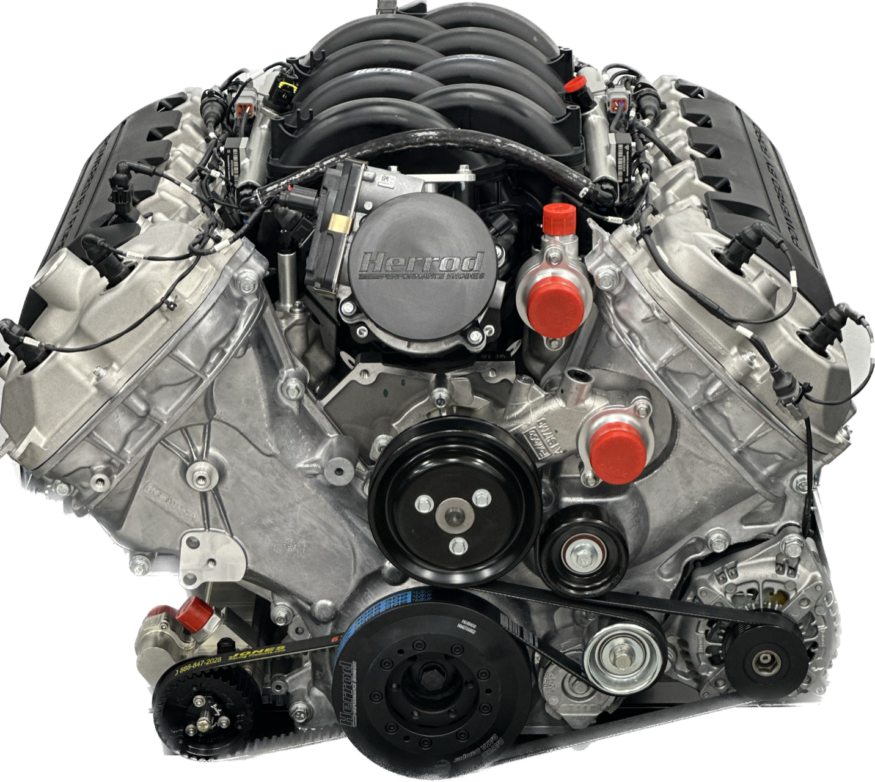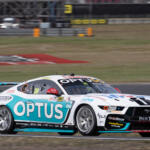Ford still not happy!

The Gen3 pressure cooker for Supercars‘ march toward Newcastle is heating up, with Ford still disgruntled by the lack of a parity solution.
The parity problems stem from engine performance and tuning, as well as a reported aero imbalance between the Mustang and Chevrolet Camaro.
In AUTO ACTION’s latest issue, Andrew Clarke reports on the conflicting views that are arising between Ford and Supercars, as the time frame gets tighter for the final sign-off on the new Mustang chargers.
Pressure rising for Newcastle
Ford remains unsatisfied with the correlation between test data and real-world feedback, while Supercars stands by its data.
The conflicting views have created a stand-off between the two parties, delaying the final sign-off on the Gen3 racers.
There have been two aspects to Ford’s grumbling, the first was the engines and that seems to be solved, and the other is the aero, where it believes the VCAT data and the real-world driving experience and data are in conflict.
At a media briefing for Ford’s re-entry into Formula One, Ford’s head of global motorsport, Mark Rushbrook, indicated the ‘Blue Oval’ was not happy with some factors on the cars, but particularly the acceleration of the cars and a disadvantage the parity system has created for the Mustang.
“I think the industry, the media certainly, have heard bits that as a manufacturer, and aligned completely with all of our racing teams, that we are not satisfied that parity has been reached either for engine or aero,” he said.
“That goes back to some of the VCAT testing that was done, and when we left there we Weren’t satisfied that the parity had been achieved.

The Ford Coyote Gen3 engine that has been developed by Herrod Performance Engines.
“And also, more recently, with some of the comparative testing that was done on the track, the acceleration of the cars down the straightaway is not equivalent. So certainly are some concerns there.
“But we’re working together in a very transparent in a collaborative way just like we do in all other racing series around the world and with Triple Eight as a lead homologation team to find solutions for that.
“We were in a very similar situation and NASCAR about two months before we went racing with the NextGen cars a little over a year ago.
“The industry came together in a very collaborative way where Chevy, Toyota, Ford and NASCAR and all of the racing teams, rolled up our sleeves and we shared data and looked at it objectively as engineers and we found solutions and made changes to the cars.
“Less than two months later, we had a start of a fantastic season and introduction of that new car and then great racing through the full series.

The sign-off for the Gen3 Ford Mustang is becoming tighter under the collar as Ford and Supercars are at odd’s with the parity data
“We approach that the same way in every racing series that we go to. And it’s no different here. So while there are certainly challenges in front of us, we believe the series understands the urgency that’s required.
“Newcastle is not too far away and we’re looking forward to a solution to be able to race in parity across both brands.
“As the cars are today and without any agreement to properly address the concerns, we believe there’s still a gap that needs to be addressed.”
The VCAT data came out with parity, but on the track, we are hearing there may be a different story.
With the same driver in both cars on different days, we are being told the data and feedback are different, although Supercars is arguing that is not conclusive.
With a standard error rate on the non-controlled data – ie, the on-track data – of more than 30%, both Ford and Supercars can argue which is right or wrong.
With that in mind, Supercars is standing by its VCAT data and believes the figures are correct and that parity has been obtained, arguing that if the engines match on the dyno and the aero figures match in the VCAT, then they have it right…
The Engines
The engine issues arose as Supercars tried to match the performance metrics of the old-world V8 in the Camaro…
The Aero Debate
Figures promoted by Supercars say they have achieved a 63-64% reduction in downforce, but the claims out of Ford are that there is an imbalance between the two cars, with the Ford being front biased and the Chev rear-biased…
To read the full story, download AUTO ACTION’s latest issue, or grab a hard copy from all leading retailers.
AUTO ACTION, Australia’s independent voice of motorsport





